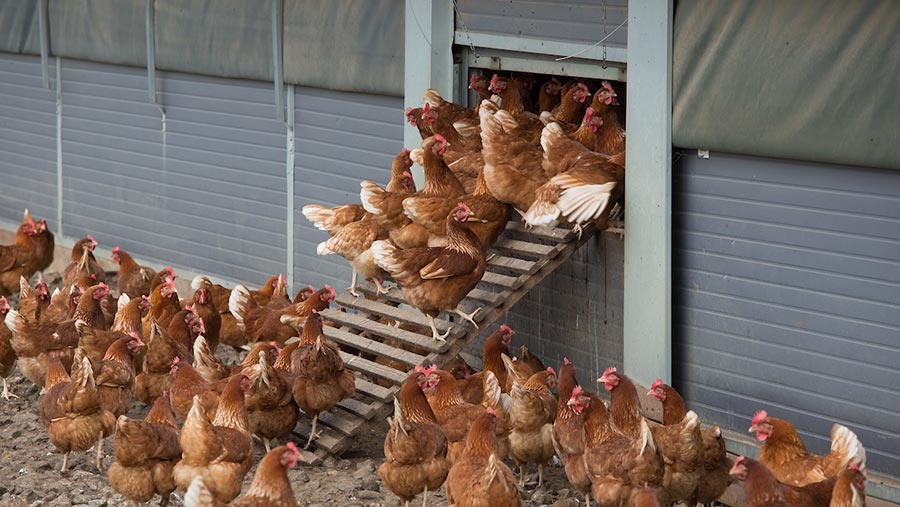Free-range eggs to be protected in event of prolonged housing
 © Tim Scrivener
© Tim Scrivener Free-range egg producers will be able to label and sell their eggs as “free range” indefinitely when their birds are subjected to mandatory housing orders in the event of a major avian influenza outbreak.
Currently, there is just a 16-week derogation in place, after which eggs must be re-classified as “barn eggs” if the laying flock is still required to be kept inside to reduce disease risk.
This can involve producers and packers in costly relabeling, as well as potentially confusing shoppers and denting consumption.
See also: Advice on cleaning free-range poultry sheds
But a new Defra consultation, which covers Scotland as well as England, is seeking to amend the Egg Marketing Standards Regulations to remove that derogation period.
Pressures
Defra farming minister Mark Spencer said: “We understand the pressures bird flu outbreaks place on our poultry and egg producers, which is why we continue to prioritise ways to support the industry during outbreaks of this disease.
“I encourage all those with an interest to take part in this consultation, to ensure that our free-range industry continues to thrive in years to come.”
The move, which mirrors a change in EU rules last November, has been welcomed by British egg industry representatives.
Gary Ford, chief executive of the British Egg Industry Council, said removing the 16-week time limit had become increasingly important due to the unprecedented levels of avian influenza in recent years.
“The changes are essential to ensure a long-term future for British free-range eggs, which we know consumers want, and we strongly support the consultation”.
Robert Gooch, chief executive of British Free Range Egg Producers Association, said it would align free-range egg marketing rules with the EU, “which is important as it means that British producers will be on a level playing field with European farmers”.
The consultation closes on 5 March.
